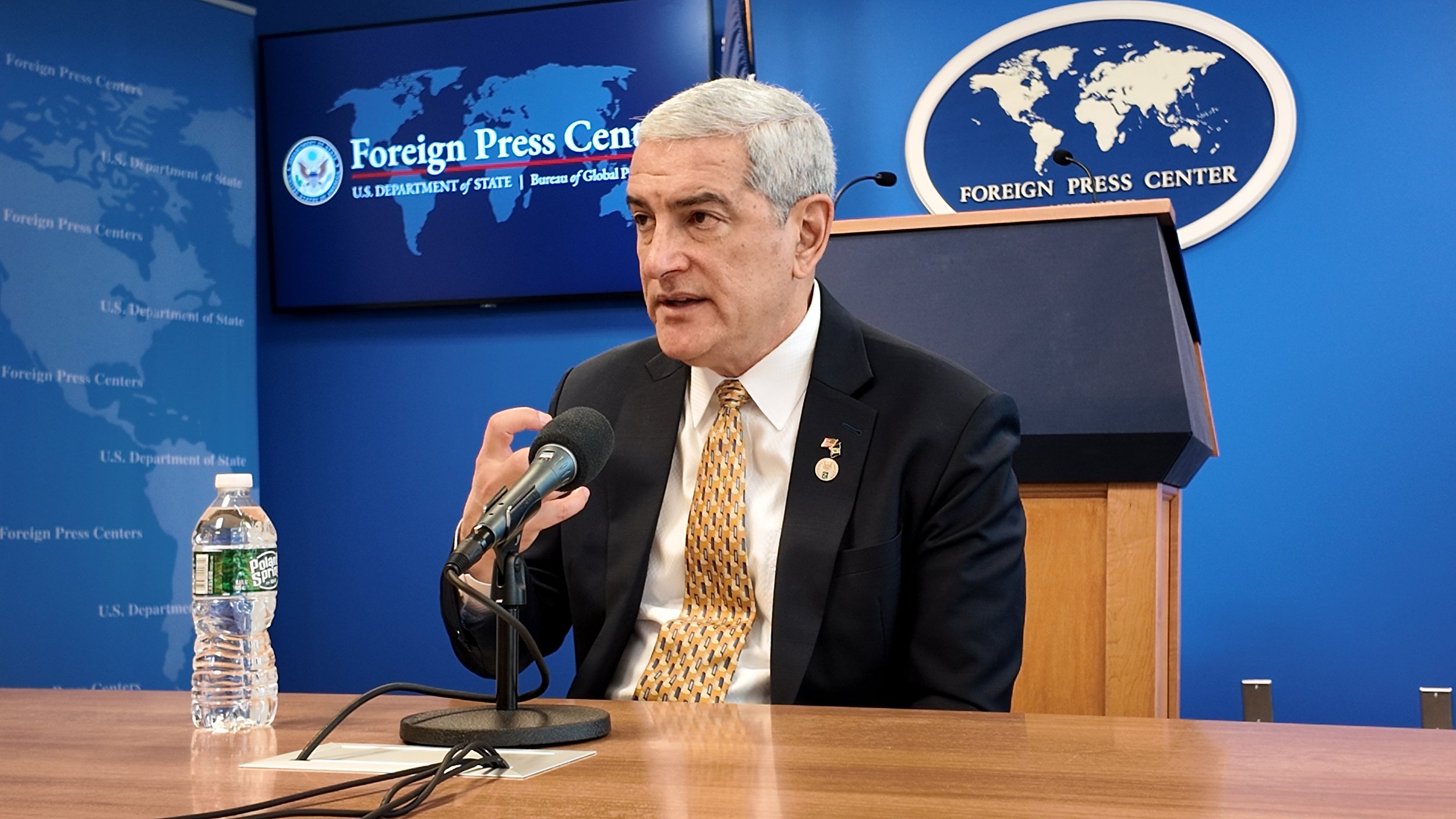Meet The U.S. Defense POW/MIA Accounting Agency
By Oyiza Adaba, New York
A SPECIAL REPORT
Today, we are set to meet with a small yet impactful agency within the U.S. Department of Defense that focuses on finding prisoners of war and those individuals who are currently classified as missing in action. This engagement opens up a significant question: what are the circumstances faced by POWs in your country, and in what ways can your country collaborate with or gain insights from the operations of the U.S. Defense POW/MIA Accounting Agency (DPAA) to address these issues more effectively?
Mr. Kelly K. McKeague, Director of the Defense POW/MIA Accounting Agency (DPAA) (Africa-Related)
This exclusive report sheds light on what actually happens to remains of POWs or prisoners of war, those considered MIA or missing in action. We spend time today with a little know agency in the US Department of Defense that does commendable work around the world in recovering missing American soldiers in global conflicts.
Mr. Kelly K. McKeague, Director of the Defense POW/MIA Accounting Agency (DPAA), spoke extensively at a press briefing organised by The Foreign Press center New York, about America's efforts to investigate, recover, identify, return 81,000 missing persons from past conflicts as far back as World War One to the Korean War, Afghanistan which recorded less of those types of cases due to the United States effort in perfecting the effort in recovery and bringing back such military personnels as soon as the situation occurs or with better immediacy when previous leave fought conflicts.
Special Report by Oyiza Adaba on POWMIA Accounting Agency
Did you know that the United States is one of a handful of countries that still maintains this practice of bringing back Prisoners of War?
From the dense jungles of Vietnam to the serene underwater landscapes off the picturesque coast of Eastern Europe, the work undertaken by the DPAA serves as a crucial tool of engagement for the United States with numerous nations around the globe. Identifying those who lost their lives in the battles of war is a task that is not taken lightly or approached with indifference. Often, news regarding the fate of family members who have been waiting in anticipation for their loved ones to return, only reaches the descendants, sometimes third or even fourth generation members, who have been handed down the painful oral tradition from one generation to the next.
Collision for a great cause: Mr. McKeague explains how science, history, service, diplomacy, a budget of 190 million dollars, missions in 45 nations and more than 100 worldwide partner institutions; collide as the Defense POW /MIA Accounting Agency. (Africa-Related)
This report concludes with historian and award-winning documentary filmmaker Emeka Ed Keazor, who sheds light on his 2020 historical documentary “Company Yaya”. The piece follows the forgotten African soldiers of world war 2 who fought for Britain in WW2 in North Africa, Kenya, and as far away as Burma.
This story is deeply personal to me because my grandfather, Joseph A. Adaba, bravely fought with the RAF Regiment 2 during a significant historical conflict. He was fortunate to survive a tumultuous war that saw the recruitment of more than 1 million African troops, among which 126,000 hailed from Nigeria alone. Tragically, out of these brave men, 15,000 did not return home, leaving behind a legacy of sacrifice and courage that continues to resonate through our family and community. These numbers are just estimates
Oyiza Adaba


